CASH ON THE HOOK
Insight into one of Norway's most Vital Economic Sectors

Heading
Meet our Industry Actors
Karl-Oskar Sævik (27), self-employed coastal fisherman, Fosnavåg
Bjørn Thore Hansen (54), Sales Manager at Finefish AS, Sandsøya
Ole Morten Sorthe (58), General Manager of The Norwegian Fishermen's Association, Møre og Romsdal
Heading
Writing is a medium of communication that represents language through the inscription of signs and symbols.
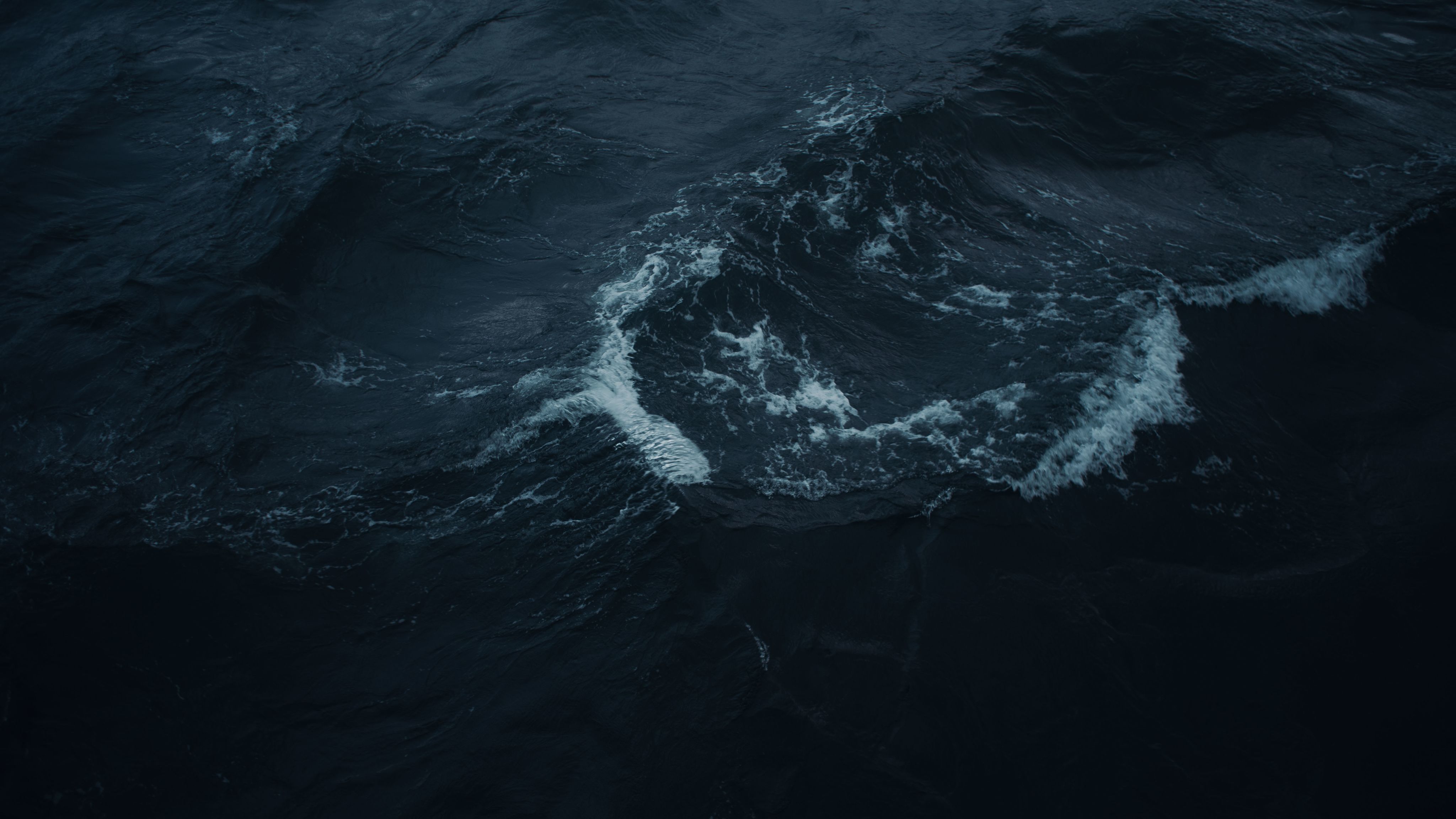
Life as a Fisherman in Norway
In more recent times being a fisherman has become a lucrative career path. The actual income of fishermen varies hugely. While some make several 100.000 NOK in weeks, for some, it may take several months until the next payday.
Almost all fishermen are self-employed. Instead of a fixed salary, they are being paid based on a percentage of the total catch. The rest of the profit goes to the boat and the owner.
Those in the minority who are employed as fishermen could also experience an unstable salary. It is common to have a relatively low fixed salary as well as larger bonuses on top for being able to fill the quotas.
In 2021, the average year income of fishermen in Norway was 547 080 NOK, but there are huge variations inside the industry depending on the type of fishing and if the fisherman is an owner.
Data collected from ssb.no
Long Workdays
During the active fishing seasons, workdays can last for more than 12 hours out on the sea. A lot of the work happens in the same period of time. If you mostly fish during the most profitable season, you could as a result have a lot of free time for other projects afterwards.
Quota Economy
For the fishermen, owning and operating their own boat is a way of life. Buying and selling quotas is part of their job.
"Buying a quota now, especially for cod, is a very big investment" Karl-Oskar Sævik.
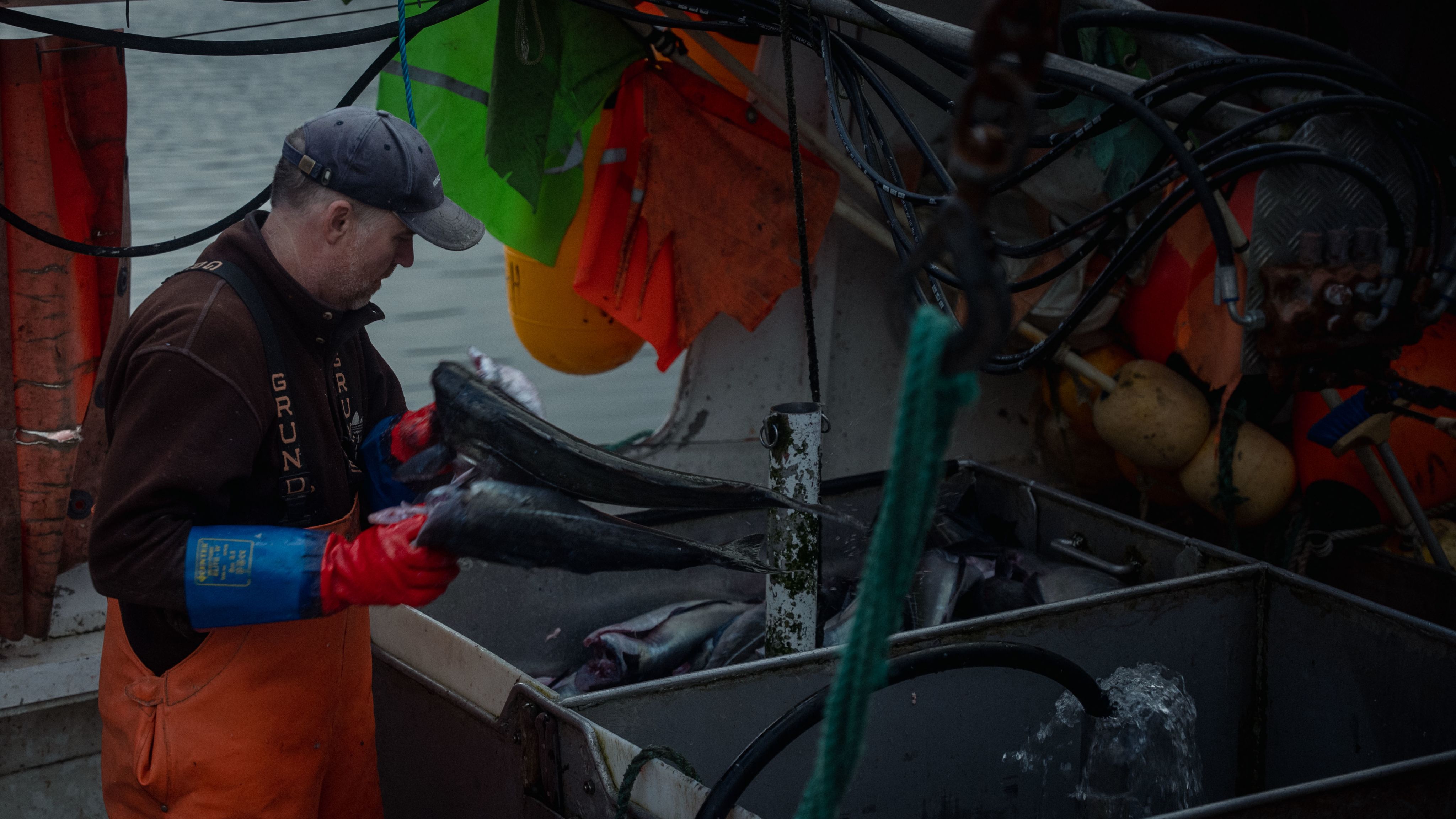
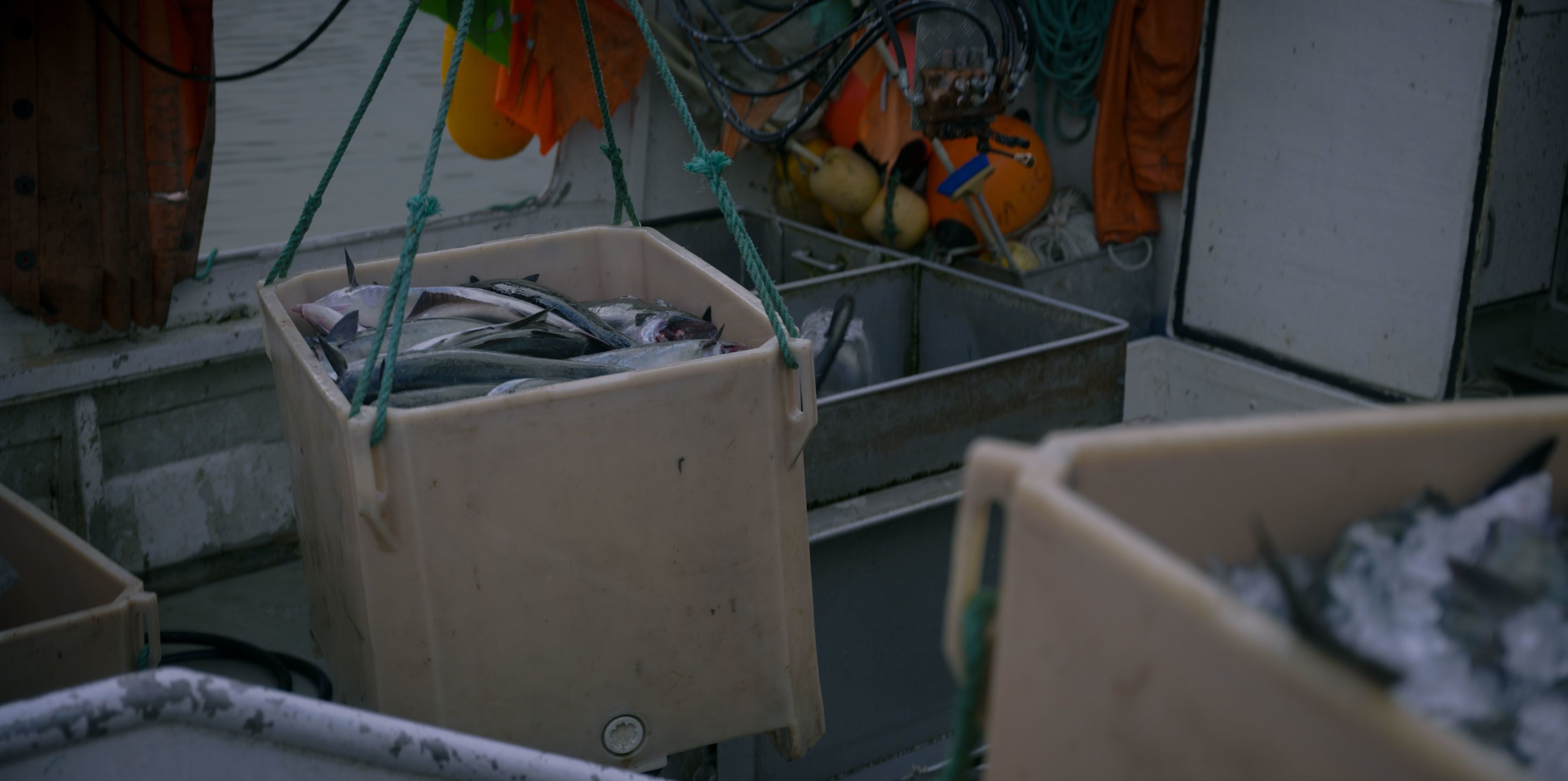
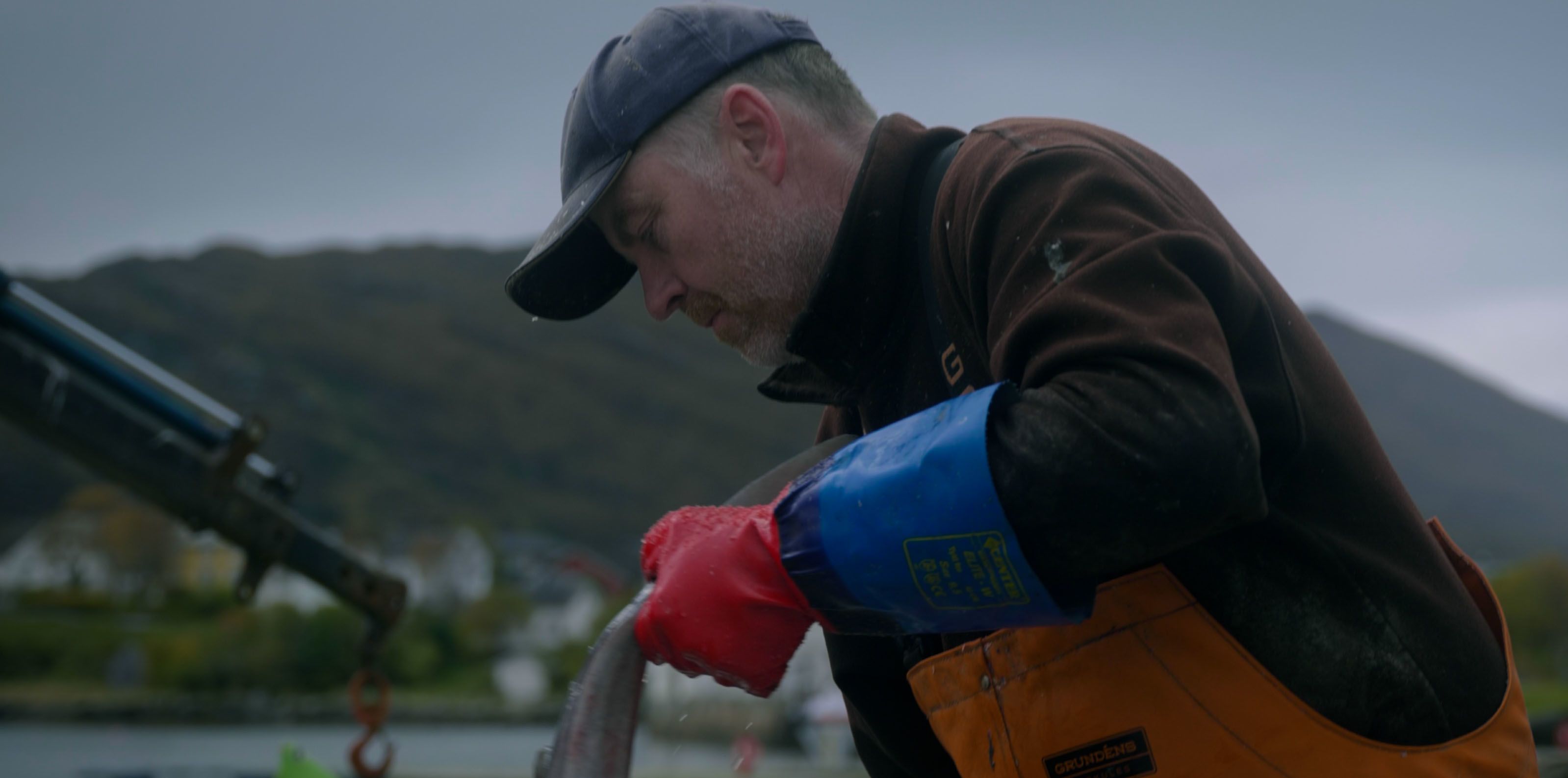

"What are quotas?"
History of the fishing sector in Norway

The Norwegian Fishing Industry
Every year, more or less two and a half million tonnes of fish are fished in Norway, which represent 21 billion NOK in total value.
The fishing industry makes a big impact in society and contributes to the world’s food supply. Therefore the protection of fish stocks is an important topic both national and international for fishing nations.

Early Days
Until the 1960's, everyone was mostly free to fish as much they wanted. This eventually led to endangering several fishing stocks, in some instance coming close to the eradication of some of them.
After being advised by maritime researchers, politicians and governments decided to set a limit on how much resources could be extracted from the sea each year. Once the limit was reached, the fishing would stop.
The competition to secure the largest catch possible meant that most of the fishing was done in the same period. This concluded in overfishing and drove the fish prices down. Eventually, fishing stopped earlier each year and many boats were often docked which resulted in poor profitability and little pay for the fishermen.

The History of Quotas
To counter the negative trends in the fishing industry, and the reliance on government subsidies, it was decided to distribute fishing quotas to the fishing fleets. Based on size, large boats were allowed to fish higher amounts than small ones. At the time, cost of life kept rising up but unfortunately fish prices did not amend in line with it.
To prevent the fishing industry from going bankrupt, it was decided to distribute the fishing quotas among even fewer fishing vessels. The government also bought back boats and equipment from the ones that were left out of the new structure. Fishermen and the Norwegian Fishermen Association had to decide among themselves who would be allowed to stay and who would fall out of the new system.
Since the late 70’s and early 80’s there now are fewer boats, and each crew member earns more as the profit from the catch is divided between each of the fishermen and the boat owner.

Open Group
Even though you don’t have a quota it is still possible to try making a living from fishing or doing it as a side job. In the open group, you can fish up till a set point, as with a regular quota, but with a fishing boat under 11 meters in length. However, to make a living from it you have to fish all kinds of fish types in different sizes.
"You have to have a quota to be able to have fishing as a year-round job with your own boat, unless it is only about fishing cod. Then, you could manage with the open group which by definition is not a quota, but nevertheless works like a quota" Ole Morten Sorthe, general manager in Norges Fiskarlag Møre og Romsdal.


A Debated Topic
Differing Opinions
The opinions about the quota system are divided. Many coastal fishermen believe that the concentration of quotas has gone too far, and much further than intended by the politicians. The high entry prices for buying a quota also makes it difficult for newcomers to become fishermen. Others want to keep the structure as it is today since fewer and bigger boats give better profitability.
The controversial selling of quotas from fishermen plays a major role in this.

2 0 2 7
A Turning Point for the Industry?
The year 2027 is mentioned as an important date by all industry actors, marking a potential turning point. Structural quotas to a value of 50 Billion NOK are on the line, as regulations are expiring in this year. It is still unclear how the quotas will be distributed among the fishing fleets.

Further Pressing Issues

External Challenges
The biggest challenge facing the fishing industry is the ever-growing and competing industries that seek to utilise the same sea areas. The same places where fishing is taking place are sought by Offshore wind power and oil fields, for example.
"Offshore wind power is as one would say, “in the wind”, at the current moment. It is the single sector that will compete the most with the fishing industry for space as the world begins to turn towards renewable energy sources" Karl-Oskar Sævik.

Sustainability
As long as the fishing industry continues to work with marine scientists, the extraction of resources from the sea-life is sustainable. Norway is considered one of the world’s leading nations when it comes to reaping the benefits of managing biological stocks.
"We have great control over what is taken out of the sea, so that we don’t fish over the threshold" Ole Morten Sorthe, General Manager in Norges Fiskarlag Møre og Romsdal.

The Fish Stocks
Most fish stocks are managed by a plethora of countries. In the Norwegian economical zone, pollock is the only fish stock that is a purely national resource.
The remaining stocks are negotiated with other nations. For instance, the arctic cod stocks are negotiated between Norway and Russia. When it comes to herring, mackerel and flounder, negotiations are held between the nations in the north-east Atlantic and the European Union.
Nonetheless, the fishing industry is becoming increasingly sustainable. Empirical evidence is showing that fishing itself is happening within relatively safe biological limits.

The Future of the Fishing Industry
Recruitment of the New Generation
"It is no secret that it has become quite profitable to be a fisherman, and perhaps especially on the big seagoing boats where most of the fishermen on board don’t own the boat themselves." Karl-Oskar Sævik.
The recruitment in the fishing industry is doing well. A clear rise of applicants to maritime education is noticeable.
"We actually have a luxury problem today. The application to take fishery education is very high, and there are high recruitments to enter. The schools educate so many that there are a lack of apprenticeships on board the fishing fleet as there is such a huge demand" Ole Morten Sorthe, general manager in the Norwegian Fishermen Association Møre og Romsdal.
The fishing industry has in a way won the competition against other industries in terms of being able to bring new blood into the workforce.
Positive Prospects
All three industry actor find that the profession is doing well. The value creation is increasing, and the future prospects look good for those engaged in the fishing industry.
"There is a good market for fish out in the world, so I think the conditions only get better and better for us in the industry" Karl-Oskar Sævik
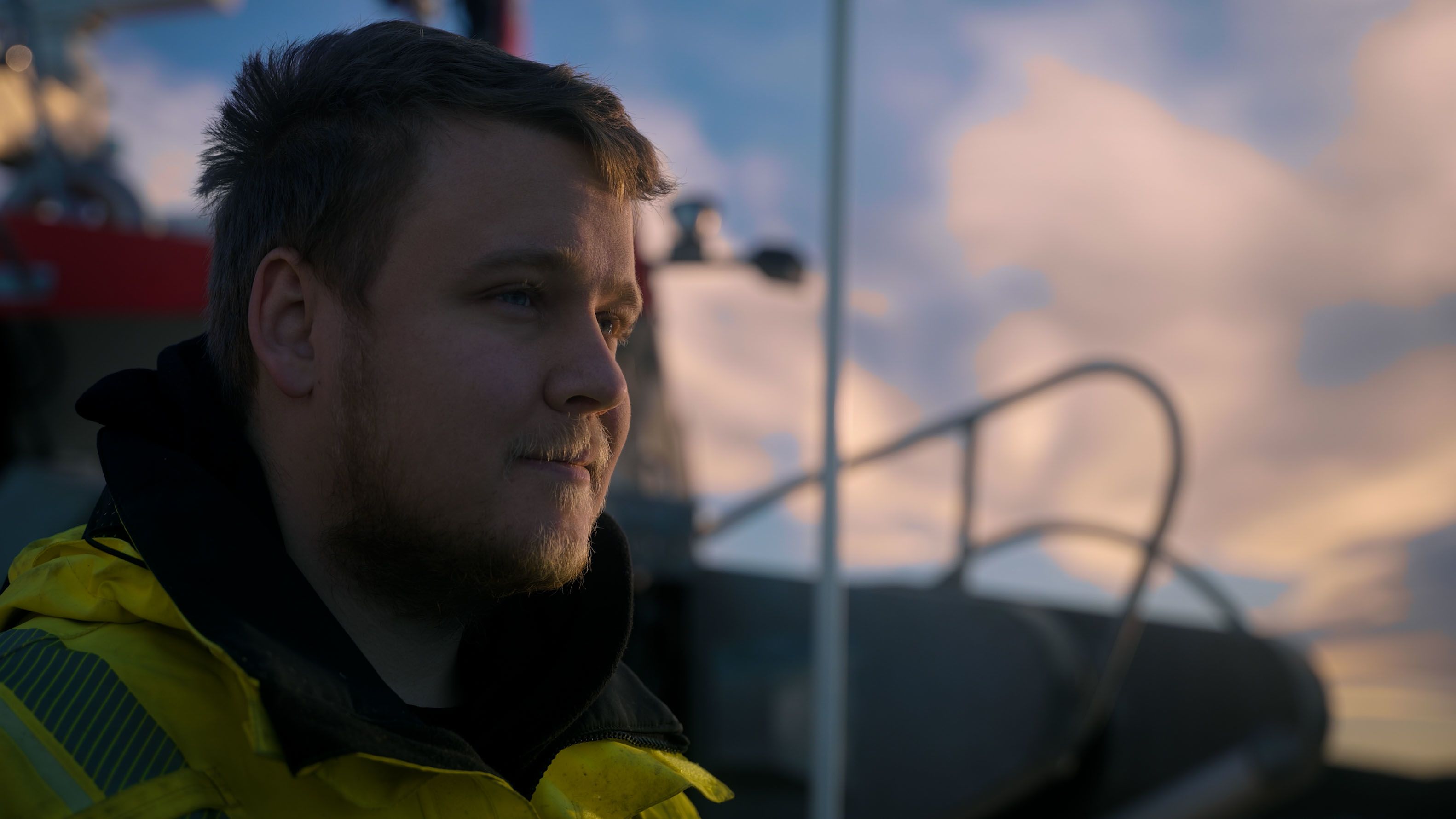
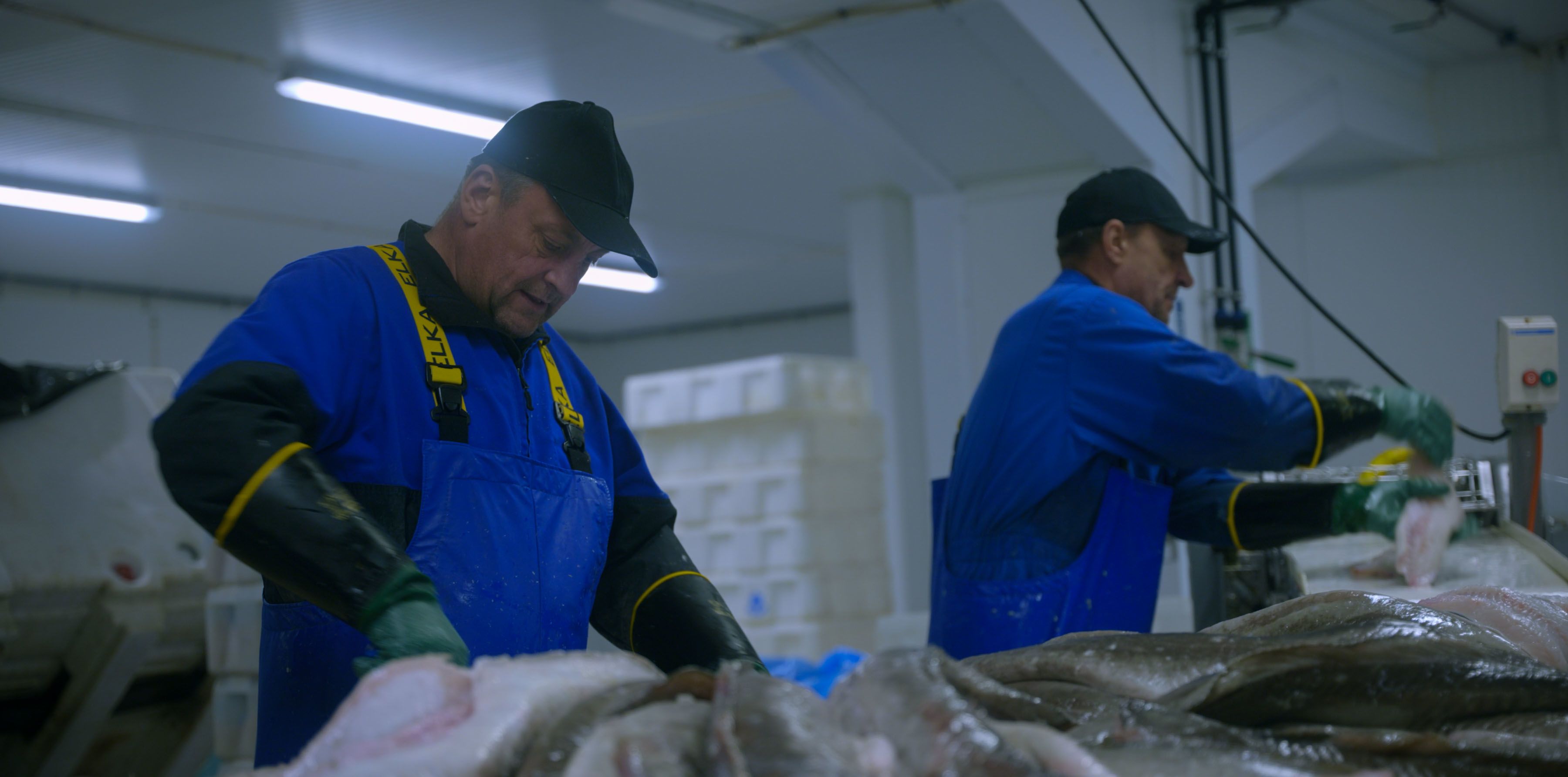
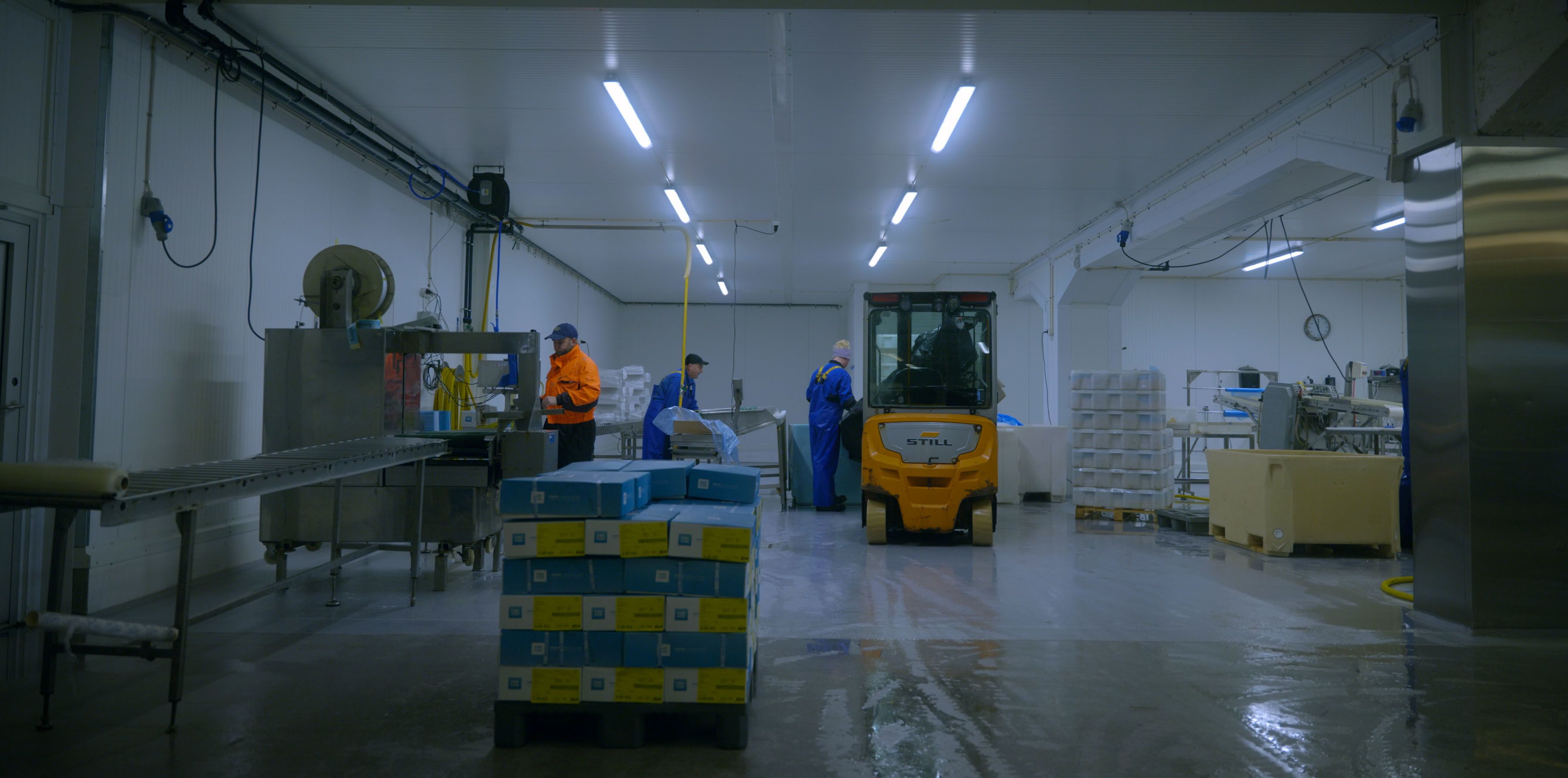

Volda University College
Contributors:
Zazie Dorchy
Johann Nordquist
Panida Pattajoti
Kaspar F. Selvik
Photo and Video credits:
Johann Nordquist
Olaf Storegjerde (1879-1958)
Published 2nd December 2022
